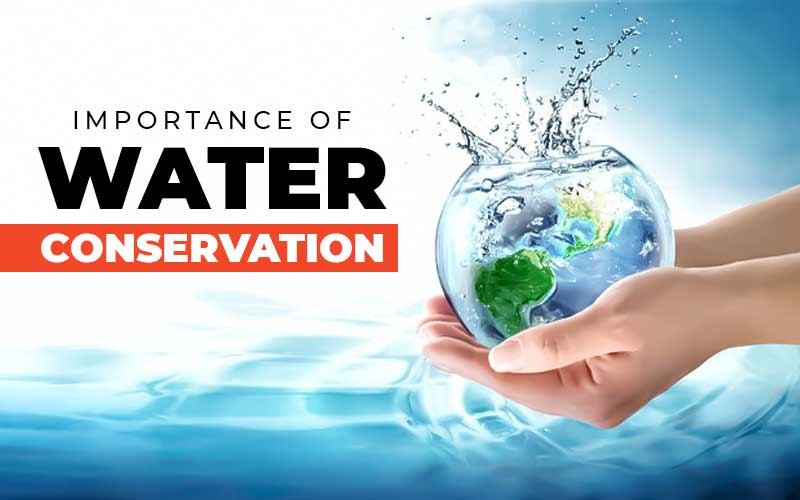
Importance of Water Conservation
Water is
essential to our lives, and yet, billions of people around the world lack
access to safe and clean water. Ahead of World Water Day here is our discussion
on the conservation of water, which refers to the protection, preservation, and
control of the usage of water and its resources.
World Water Day is a global event
celebrated every year on March 22nd to raise awareness about the importance of
water and the need for sustainable management of this vital resource. This
year's theme is "accelerating change to solve the water and sanitation
crisis," which encourages people to take action in their own lives to
change the way they use, consume and manage water.
It is crucial to reflect on the
importance of water and the actions we can take to ensure that everyone has
access to safe and clean water. This can have devastating consequences for
their health, education, and economic opportunities. Without access to safe and
clean water, people are at risk of contracting waterborne diseases, such as
cholera and typhoid, which can be fatal. Children are particularly vulnerable
to these diseases, and the lack of access to clean water can also lead to malnutrition and stunted growth.
The water crisis is not just a
problem in developing countries. Even in developed countries, access to safe
and clean water is not guaranteed. Flint, Michigan, is an example of a
developed country struggling with water issues. In 2014, the city switched its
water source to the Flint River, which was highly contaminated with lead. The
resulting water crisis led to widespread health problems, including elevated
lead levels in children.
One of the
key ways to address the water crisis is to invest in sustainable water
management practices. This means taking a comprehensive approach to water
management that considers the social, economic, and environmental impacts of
water use. Sustainable water management includes reducing water usage,
improving water quality, and protecting water sources from pollution. In
addition to sustainable water management, it is essential to prioritize access
to safe and clean water as a basic human right. The United Nations has
recognized access to safe and clean water as a fundamental human right, and
governments around the world must work to ensure that everyone has access to
this essential resource.
On an individual level, there are
also actions we can take to conserve water and protect this vital resource.
Simple changes in our daily habits, such as taking shorter showers, fixing
leaks, and using water-efficient appliances, can help reduce water usage and
save money on water bills. It is also important to be mindful of the products
we use and the chemicals we dispose of, which can contribute to water
pollution.
In conclusion,
World Water Day serves as an important reminder of the vital role that water
plays in our lives and the urgent need to protect this resource. Sustainable
water management practices, prioritizing access to safe and clean water as a
basic human right, and individual actions to conserve water and reduce
pollution are all essential to address the water crisis. As we celebrate World
Water Day, let us reflect on our collective responsibility to ensure that
everyone has access to this vital resource, not just on this day, but every
day.
Disclaimer: The opinions expressed in this article are those of the author's. They do not purport to reflect the opinions or views of The Critical Script or its editor.

Newsletter!!!
Subscribe to our weekly Newsletter and stay tuned.

















Related Comments